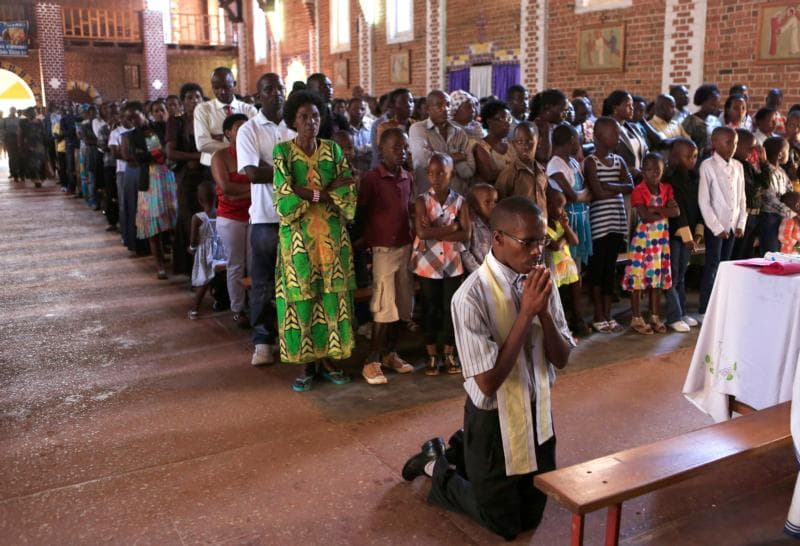Rwanda’s Catholic Church said it hopes to reach agreement with the government of President Paul Kagame after senior officials accused the church of hampering birth control policy by refusing contraception and abortion at its hospitals and clinics.
“What’s important is for people to know we are in a dialogue. Once we are done with talks, we’ll come up with a clear agreement,” Bishop Philippe Rukamba of Butare, bishops’ conference president, told Rwanda’s The New Times daily July 22.
“Under our current accord, we have many provisions, from use of medicines to management of staff and infrastructure, and in these ongoing talks, we will also discuss the provision of family planning services,” the bishop said. “Without dialogue, people start being confrontational, and that isn’t needed.”
Rukamba spoke after meeting government officials in the capital Kigali to discuss accusations that Catholic teaching was impeding government attempts to restrict population growth.
In a June 21 meeting at the parliament, Rwanda’s health minister, Diane Gashumba, said she had attempted to “educate the church” about the need for “full family planning services,” including contraception, at all health facilities, but said the church was “frustrating efforts to control births” by “allowing only natural contraception.”
“We can’t continue with a situation where health care professionals trained and paid by the government can’t do their job because the church has prevented them,” the minister told legislators.
“Our many consultations with church leaders haven’t produced any useful results. It’s time our constitution was respected and our country’s laws enforced, since dialogue with the church hasn’t worked,” she said.
Rwanda is Africa’s most densely population country. Catholics comprise half of the country’s 12.2 million people.
The church runs a third of all hospitals and clinics, many with state-paid medical staff, although many Catholic facilities adjoin government-run “health posts” that provide contraception and abortion.
In a pastoral message in October, the bishops’ conference said the country was “threatened by a pandemic of promiscuity,” that endangered “human life, the family and even the entire country.” The message said any turn to abortion risked divine punishment.
“We hope the state will not force doctors in public hospitals to facilitate abortion contrary to their objection of conscience,” the bishops said.
“We would like tell all staff in our medical centers that we can never allow this sin of abortion, and we want Christian doctors to take the lead in protecting life,” they said.
However, a November report by Rwanda’s Senate warned that religious beliefs were “derailing birth control,” alongside poor policy planning and coordination.
Meanwhile, Rwandan Prime Minister Edouard Ngirente said the government planned to build 1,700 more “health posts” by 2024, pending arrangements with the Catholic Church, according to The New Times.
Four-fifths of Rwandans work in agriculture, with about 44 percent living below the poverty line, according to the United Nations. A government program, launched in 2006, seeks to cut fertility levels from 5.8 children per woman in 2000 to 2.3 by 2050.
In a statement after its May plenary meeting, the Rwandan bishops’ conference said the church remained committed “to solving the problems of the Rwandan family,” including “extreme poverty of children” and an increase in early pregnancies, but said it also feared society was “gradually losing its standards.”
Crux is dedicated to smart, wired and independent reporting on the Vatican and worldwide Catholic Church. That kind of reporting doesn’t come cheap, and we need your support. You can help Crux by giving a small amount monthly, or with a onetime gift. Please remember, Crux is a for-profit organization, so contributions are not tax-deductible.












